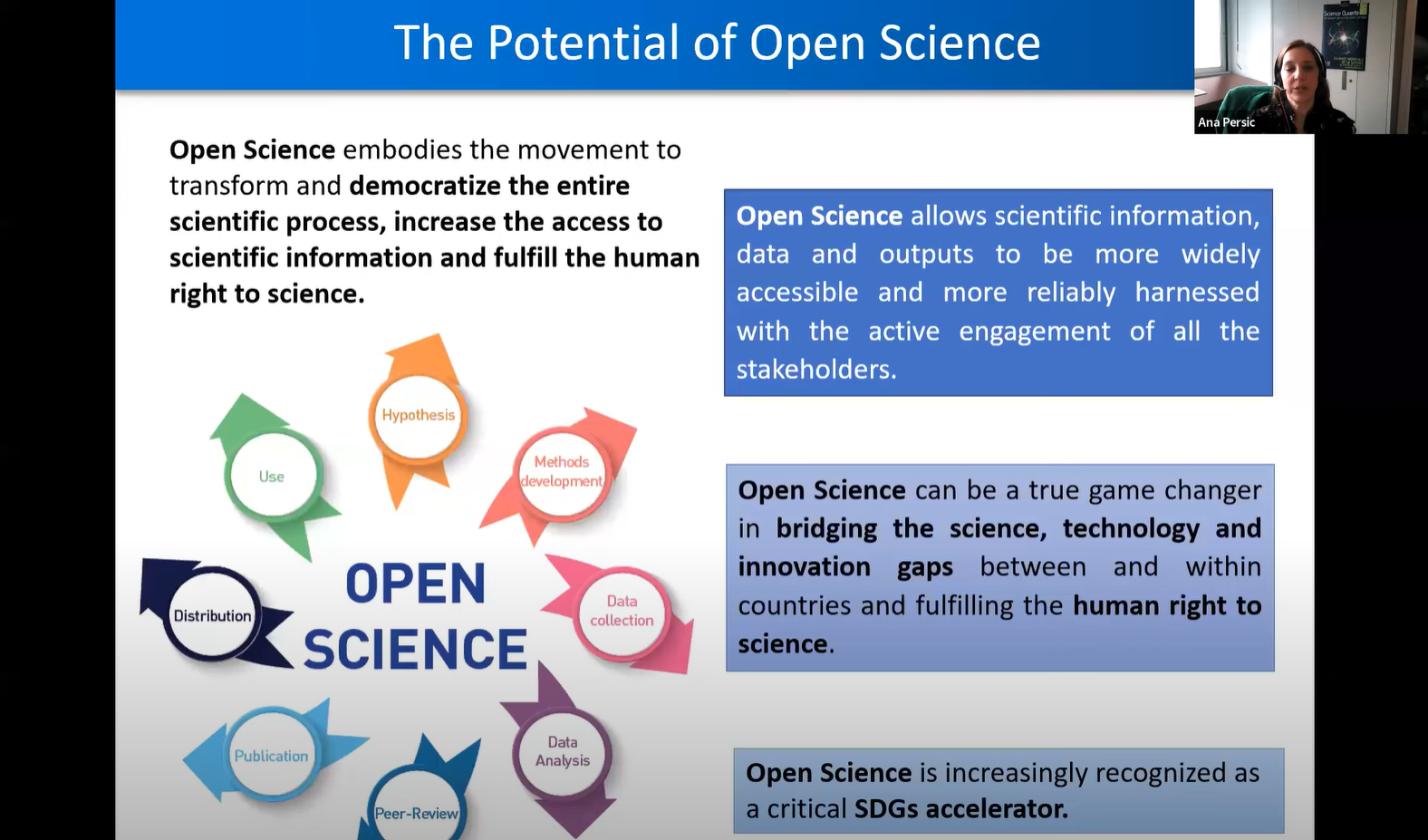Date May 23, 2023, at 8AM PT / 9AM MT / 10AM CT / 11AM ET / 5PM CES
Title The Pathway to Implementing the UNESCO Recommendation on Open Science
Speaker Ana Persic, UNESCO

Abstract: The United Nations Educational, Scientific, and Cultural Organization (UNESCO) led a consultative and collaborative process to develop an international standard-setting instrument on open science in the form of a UNESCO Recommendation on Open Science, which was adopted by 193 counties in November 2021. This talk will highlight the components of the Recommendation, including key definitions, values and guiding principles, and areas of action. With the advent in the US of the Nelson memo and OSTP naming 2023 as the year of open science, it is timely to refer to UNESCO’s efforts which also include an open science toolkit and checklists to support the implementation of open science worldwide.

Bio:: Dr. Ana Persic is Programme Specialist at the Science Policy and Innovation Policy Section at the UNESCO headquarters in Paris. An ecologist by training with a Ph.D. in Ecotoxicology, Dr. Ana Persic joined UNESCO in April 2006 in the framework of UNESCO’s Man and the Biosphere program within the Division of Ecological and Earth Sciences in Paris. She then served as a Science Specialist at the UNESCO Liaison Office in New York from 2011-2018. Her work relates to strengthening the science-policy interface and promoting science, technology, and innovation in implementing the United Nations 2030 agenda for sustainable development and sustainable development goals (SDGs). She coordinated the work to develop the UNESCO Recommendation on Open Science and is currently working on its implementation of UNESCO Recommendation on Open Science.


